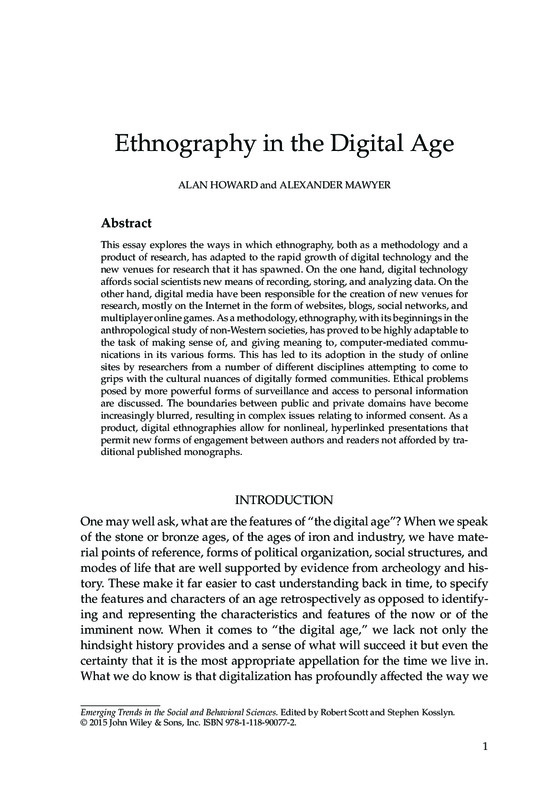Ethnography in the Digital Age
Title
Ethnography in the Digital Age
Author
Howard, Alan
Mawyer, Alexander
Research Area
Methods of Research
Topic
Research Methods ‐ Qualitative
Abstract
This essay explores the ways in which ethnography, both as a methodology and a product of research, has adapted to the rapid growth of digital technology and the new venues for research that it has spawned. On the one hand, digital technology affords social scientists new means of recording, storing, and analyzing data. On the other hand, digital media have been responsible for the creation of new venues for research, mostly on the Internet in the form of websites, blogs, social networks, and multiplayer online games. As a methodology, ethnography, with its beginnings in the anthropological study of non‐Western societies, has proved to be highly adaptable to the task of making sense of, and giving meaning to, computer‐mediated communications in its various forms. This has led to its adoption in the study of online sites by researchers from a number of different disciplines attempting to come to grips with the cultural nuances of digitally formed communities. Ethical problems posed by more powerful forms of surveillance and access to personal information are discussed. The boundaries between public and private domains have become increasingly blurred, resulting in complex issues relating to informed consent. As a product, digital ethnographies allow for nonlineal, hyperlinked presentations that permit new forms of engagement between authors and readers not afforded by traditional published monographs.
